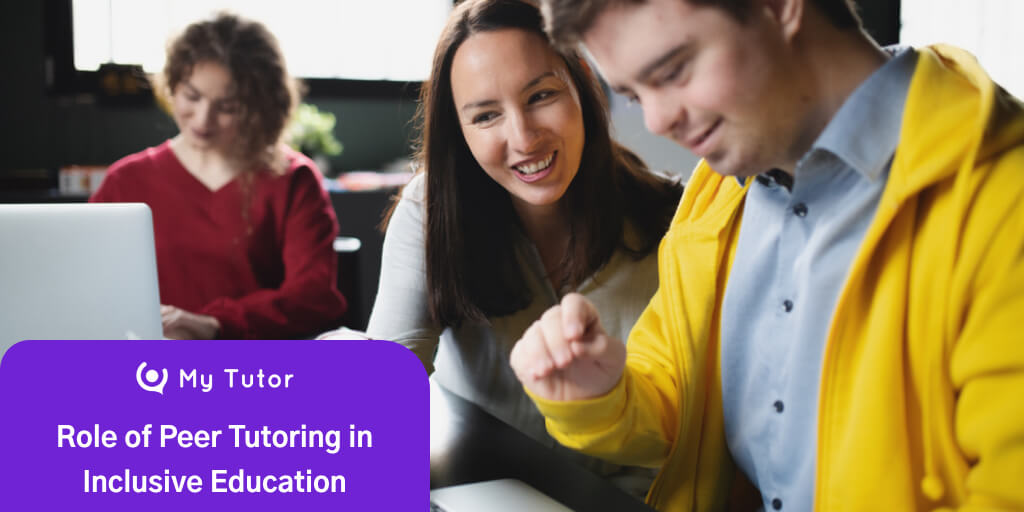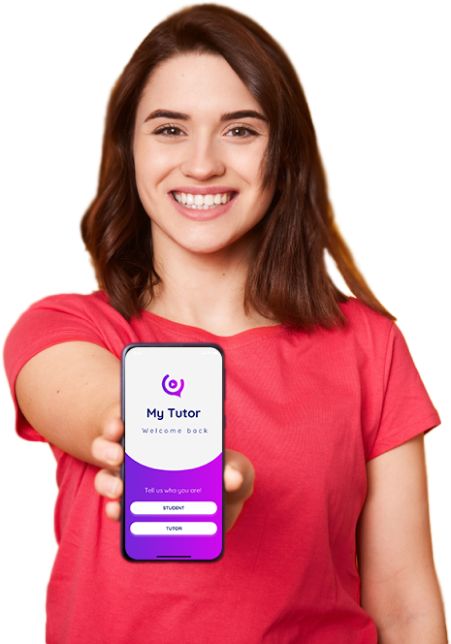Blog

Role of Peer Tutoring in Inclusive Education
Fair and equal learning opportunities for all students irrelevant of their learning abilities can make education more effective and interesting for all. This is what inclusive education is all about. It aims to prevent students from being segregated based on their learning capacities. Many people think that peer tutoring can play a vital role in this kind of education. Is this true?
We know that peer tutoring is a teaching strategy that involves students of similar or different ages or abilities working together in small groups. Now, this teaching method has been found to be effective in enhancing student learning and academic achievement in inclusive education settings.
In this blog post, we will explore the role of peer tutoring in inclusive education and how it can benefit all students involved. So, let’s get started!
What is Inclusive Education?
Inclusive education is a teaching approach that aims to provide all students, regardless of their abilities, with equal opportunities to learn and participate in the classroom. This approach involves the integration of students with disabilities or special needs into regular classrooms. The goal is to provide them with the necessary support and accommodations to achieve academic success.
The Role of Peer Tutoring in Inclusive Education

Peer tutoring is an effective teaching strategy that can be used in inclusive education settings mainly for two reasons. One is to enhance academic performance and the other is to promote social inclusion.
Peer tutoring involves pairing students with similar or different abilities to work together on academic tasks or projects. Thus, in inclusive education settings, peer tutoring can be used to support students with disabilities or special needs. This can help the ones who may require additional assistance to keep up with their peers.
Besides, cooperative learning in groups can also keep the students motivated to learn any difficult subject.
There are other benefits as well. Let’s learn some amazing benefits of peer tutoring in inclusive education!
5 Benefits of Peer Tutoring in Inclusive Education

- Enhanced Learning: Peer tutoring has been shown to improve academic performance, particularly in students with disabilities or special needs. Peer tutors can provide personalized instruction and support. Also, learning from peers can be less intimidating than learning from a teacher. As a result, students are able to keep up with their peers and achieve their academic goals.
- Increased Social Inclusion: Peer tutoring can also promote social inclusion. They provide students with disabilities or special needs the opportunity to work with and learn from their peers. This can help to break down barriers and promote a more inclusive classroom environment.
- Improved Self-Esteem: Peer tutoring can also improve the self-esteem and confidence of students with disabilities or special needs. Working with a peer tutor who is supportive and encouraging can help these students feel more confident in their academic abilities. Moreover, the students can feel more included in the classroom. Thus, the students can remain motivated and inspired throughout their learning period.
- Increased Engagement: Peer tutoring can also increase student engagement. It is because they provide students with more opportunities to participate actively in the learning process. This can help to improve academic outcomes and promote a more positive classroom environment. Besides, since the students feel confident in their abilities, they tend to participate during the learning without any inhibitions or fear.
- Positive Impact on Peer Tutors: Peer tutoring can also have a positive impact on the peer tutors themselves. Peer tutors can develop leadership skills, empathy, and a greater understanding of diverse learning needs. Additionally, peer tutoring can provide peer tutors with a sense of purpose and satisfaction by helping others.
Conclusion
There is no doubt that peer tutoring is an effective teaching strategy that can be used in inclusive education settings to enhance academic performance and promote social inclusion. Peer tutors in this case can be either of the same age or grade or at the senior levels. By incorporating any of those peer tutorings into inclusive education settings, we can promote a more positive and inclusive classroom environment for all students.
My tutor is available on Android and iOS







